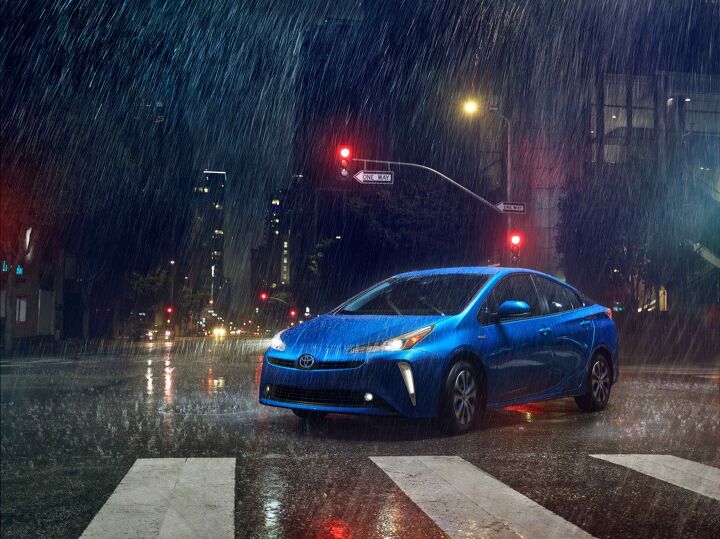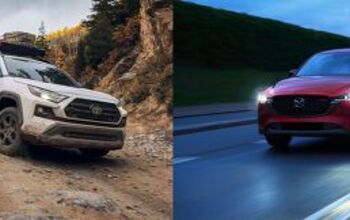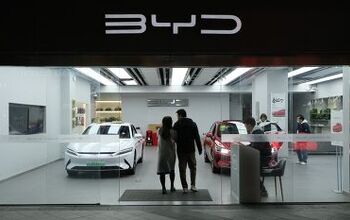Toyota - the Non-EV Brand People Assume Is an EV Brand

Confusion still reigns in the minds of auto consumers, especially when it comes to the murky world of electrification. Past studies have shown that years of misleading terminology and boasting about the capabilities of hybrid and plug-in hybrid vehicles resulted in a public that knew little about the changing auto landscape, or what a hybrid car even does.
“What will happen when my hybrid’s battery depletes?” is a question too many people still ask themselves.
The same murkiness is at play in a recent study by Cox Automotive, in which we learn that Toyota has earned a reputation it doesn’t deserve.
Cox surveyed some 2,503 consumers and 308 franchised dealers to pinpoint barriers to electric vehicle ownership. Consumer expectations were also on the must-find list. The study — the first in a four-part series — is full of useful data on the driving styles and associated costs of various age demographics, as well as the respondents’ attitudes.
The consumer group included those who already own an EV and those looking to buy, as well as those with no intention of kicking internal combustion to the curb. Go figure, the vast majority (83 percent) of so-called “non-considerers” placed range anxiety at the top of their gripe list, with cost (70 percent) a runner-up. For those who’d consider an EV purchase, cost topped the list of ownership barriers, with 77 percent perceiving initial costs as being more than that of a conventional car.
Nothing shocking here. As battery prices drop and range expands, EVs are slowly becoming more viable in terms of cost and driving range, but they’re still years away from being on par with ICE-powered vehicles. The culling of small cars and big boosts to both standard safety equipment and fuel economy has elevated an ICE vehicle’s average selling price at a rate double that of EVs.
What is surprising, at least for those who assume the public is well-versed on all things automotive, is how the respondents ranked automakers on the EV file. Essentially, this crowd was asked which brands spring to mind when thinking EVs. As Cars Direct noted, Toyota comes in at No. 2, right behind first-ranked Tesla. While some 81 percent of respondents mentioned Tesla, an automaker which has never sold a non-EV vehicle, some 52 percent listed Toyota.
Toyota sells a great number of hybrid vehicles (the Prius and RAV4 Hybrid, to name a couple of top segment sellers), as well as a lone plug-in hybrid (Prius Prime), but it currently fields exactly zero electric vehicles. The limited-market Mirai powers itself solely by electricity, but an on-board hydrogen tank and fuel cell converts that fuel to electric current. No giant battery pack needed, no plug to be found.
It looks like Toyota’s hybrid game has made it a major player in the EV field, if only in people’s minds.
Automakers who put the money and effort into building a viable, lower-cost EV fared worse in the recognition test. Only 47 percent of respondents mentioned Chevrolet, seller of the 248-mile Bolt and, until recently, the “extended range electric vehicle” Volt.
Nissan fared worse. Despite selling the all-electric Leaf — a car now well into its second generation — since the beginning of the decade, only 42 percent mentioned Nissan. Ungrateful bastards, a brand loyalist might say.
Toyota was a reluctant late entry in the “all Americans will want an EV” game, prefering to offer hybridized versions of its existing models for not that much more money. That strategy’s still top of mind. From an environmental and cost perspective, it’s a solid plan, but Toyota knew it couldn’t hold out forever. With its rivals promising Big EV Things in the coming decade, Toyota hauled itself aboard the bandwagon.
Six electric vehicles are incoming from Toyota between 2020 and 2025, but brand perception is not something it needs to lose sleep over.
[Image: Toyota]

More by Steph Willems
Latest Car Reviews
Read moreLatest Product Reviews
Read moreRecent Comments
- Kwik_Shift_Pro4X What's worse than a Malibu?
- MaintenanceCosts The current Malibu is poorly packaged; there's far more room inside a Camry or Accord, even though the exterior footprint is similar. It doesn't have any standout attributes to balance out the poor packaging. I won't miss it. But it is regrettable that none of our US-based carmakers will be selling an ordinary sedan in their home market.
- Jkross22 You can tell these companies are phoning these big sedans in. Tech isn't luxury. Hard to figure out isn't luxury.This looks terrible, there are a lot of screens, there's a lot to get used to and it's not that powerful. BMW gave up on this car along time ago. The nesting doll approach used to work when all of their cars were phenomenal. It doesn't work when there's nothing to aspire to with this brand, which is where they are today. Just had seen an A8 - prior generation before the current. What a sharp looking car. I didn't like how they drove, but they were beautifully designed. The current LS is a dog. The new A8 is ok, but the interior is a disaster, the Mercedes is peak gaudy and arguably Genesis gets closest to what these all should be, although it's no looker either.
- Ajla My only experience with this final version of the Malibu was a lady in her 70s literally crying to me about having one as a loaner while her Equinox got its engine replaced under warranty. The problem was that she could not comfortably get in and out of it.
- CoastieLenn Back around 2009-2010, a friend of mine had a manual xB and we installed a Blitz supercharger kit. Was a really fun little unit after that.



































Comments
Join the conversation
This survey has no relevance in my part of the world since there is no mention of Renault or Mitsubishi.
Before I drove a Tesla and a Nissan Leaf I owned 2 Toyota 4 Runners.